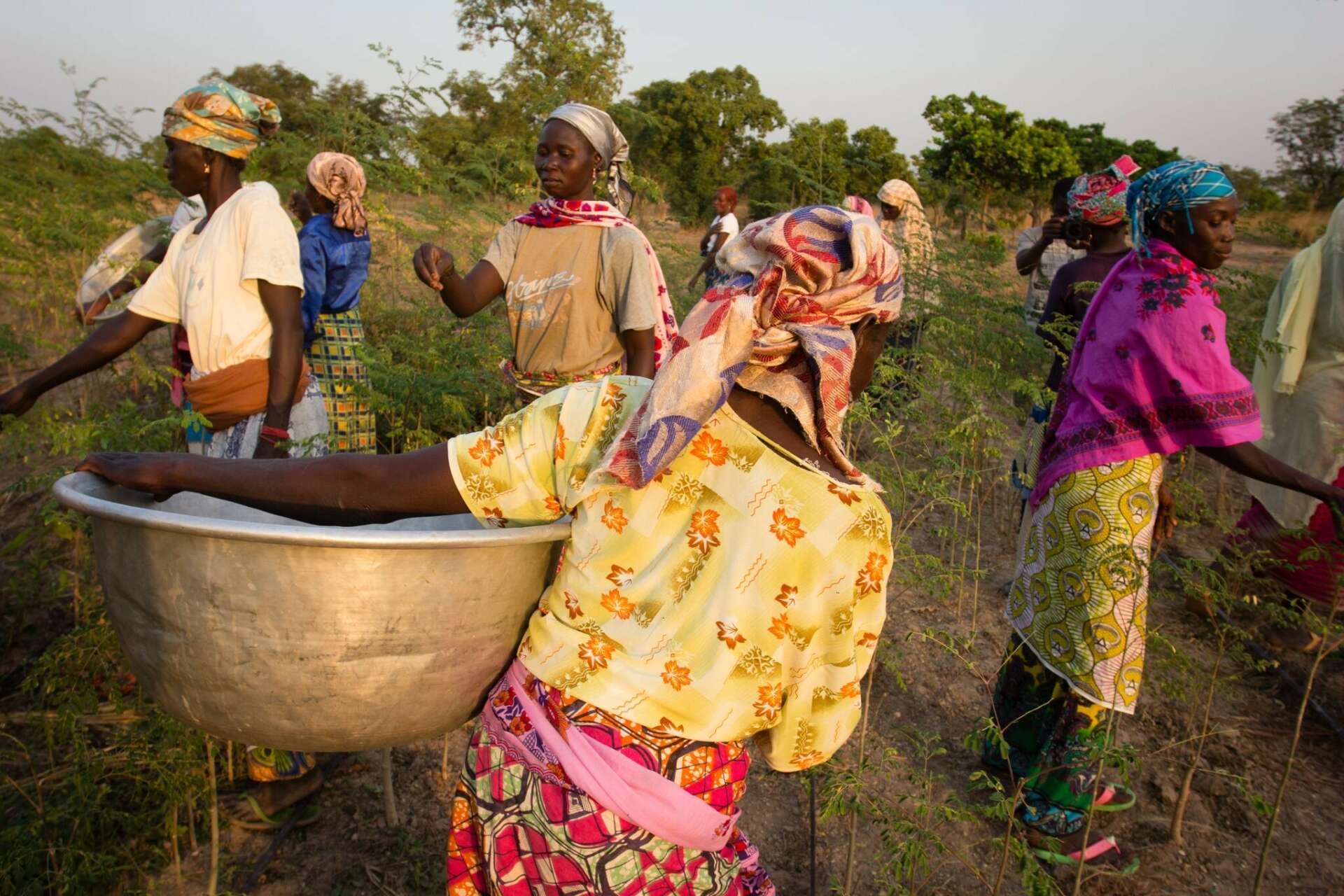We were lucky to catch up with Lisa Curtis recently and have shared our conversation below.
Lisa, appreciate you joining us today. Let’s start with the story of your mission. What should we know?
As a vegetarian, I was feeling sluggish from a diet of mostly rice while serving as a Peace Corps Volunteer in Niger. Women in the local community advised me to eat moringa leaves, showing me how to mix them into a local snack called kuli-kuli. After eating the nutritious kuli-kuli moringa snack, my energy returned. The leaves of the moringa tree are packed with protein, vitamins, and antioxidants, providing a powerful boost of nutrition and caffeine-free energy. I recognized the potential for moringa as a powerful tool for nutritional health. While moringa was recognized locally for its medicinal benefits, farmers saw no reason to grow it without market demand. I was inspired to find a market-based solution to realize moringa’s potential as a powerful tool for nutritional health and expand US market access to African women farmers. I returned home to the U.S. and built Kuli Kuli, a social enterprise that brings the nutritious moringa leaves to American consumers while partnering to create jobs and promote local consumption in the communities where moringa is grown. Nourishing you, Nourishing the world™.



Great, appreciate you sharing that with us. Before we ask you to share more of your insights, can you take a moment to introduce yourself and how you got to where you are today to our readers.
Kuli Kuli is the leading brand pioneering climate-smart superfoods like moringa in the US. Moringa is a naturally energizing green superfood packed with protein, antioxidants and vitamins. Kuli Kuli offers the highest quality, most sustainable superfoods by partnering with local entrepreneurs and sourcing directly from small farmers, prioritizing African and women-led social enterprises. Kuli Kuli’s superfood powders and snacks are sold in 11,000 stores nationwide and online at kulikulifoods.com.
Kuli Kuli’s vision is to pioneer the plants of the future in the US market. Our mission is to turn climate-smart, community-grown superfoods into staple foods, enabling us to generate income for thousands of farmers while also fighting climate change. We partner with local entrepreneurs to create sustainable supply chains that provide nourishment, livelihood, and reforestation in communities around the world. With each supplier we work with, our focus is on regenerative agricultural practices, women’s empowerment, and providing nourishing superfoods to their local community.
As a Certified B Corp, Kuli Kuli meets high standards of environmental performance and public transparency. Kuli Kuli’s supply chain spans 24 million moringa trees and includes over 3,000 farmers, generating more than $5 million in income to small family farms. Kuli Kuli’s Pure Moringa line uses pouches made from recycled materials, saving the equivalent of an estimated 40,000 plastic bottles per year. Learn more about our impact at https://www.kulikulifoods.com/pages/our-impact.


How did you put together the initial capital you needed to start your business?
When I first returned from the Peace Corps with the idea to start Kuli Kuli Foods, no investors took me seriously. I was 23, had zero experience in food, and many investors openly doubted my ability to source an unknown African plant and turn it into the next superfood. Since I had very little of my own money to put into the business, I turned to the crowd. We launched an Indiegogo crowdfunding campaign in 2013, and at the time were the most popular food campaign Indiegogo had ever had with 800 people backing us from over 30 countries. That $53,000 helped us to create our Moringa Superfood Bars and launch them into Whole Foods. I quit my day job to pursue Kuli Kuli full-time but didn’t have any money to pay myself or to spend on marketing. I went to every pitch event I could find and told my story to anyone who would listen. Slowly, investor by investor, I put together a $500k seed round. Then we got the news that Whole Foods wanted to launch us nationwide. We didn’t have the money to launch, and so I quickly raised another $500k. Once we were nationwide, and had proven ourselves, I was able to raise a $3M Series A, and then a $6M Series B. One of the lessons I learned was to never take no for an answer, and to keep potential investors updated. Through all of my networking I built a list of almost 300 investors who had told me “no”. I kept them all updated on a quarterly basis, and for our Series B, one of those investors who had told us “no” ended up investing almost $2M.


Can you share a story from your journey that illustrates your resilience?
We were just finalizing the details for our Whole Foods nationwide launch when we heard from our only moringa supplier, a cooperative in Northern Ghana, that their entire farm had burned down in a massive wildfire. At the time all of our marketing was about this one cooperative, and sourcing from West Africa. It felt like the end of the world, but I decided that we couldn’t let this end us. I did a ton of research and found a moringa farm in Nicaragua that met our quantity and quality requirements. We pivoted all of our marketing to be more focused on small farmers and less West Africa specific. The Nicaragua farm miraculously managed to get us moringa in time, and we made the launch.


Contact Info:
- Website: https://www.kulikulifoods.com
- Instagram: https://www.instagram.com/kulikulifoods
- Facebook: https://facebook.com/kulikulifoods
- Linkedin: https://www.linkedin.com/company/kulikulifoods/
- Twitter: https://twitter.com/kulikulifoods
- Youtube: https://www.youtube.com/c/kulikulifoods/videos


